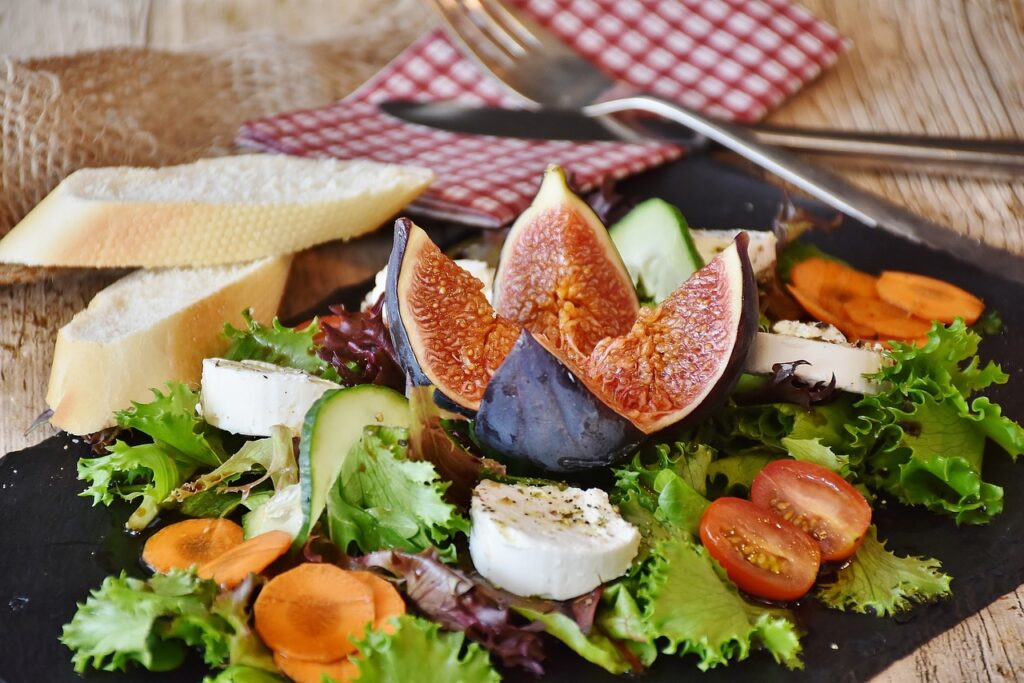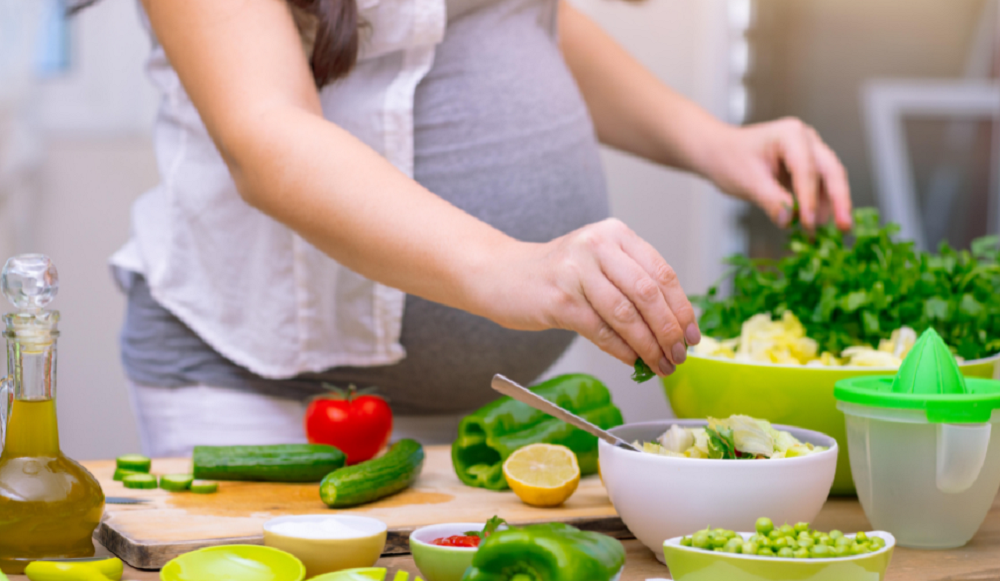Your diet during pregnancy directly impacts your baby’s development and your overall health. But knowing what to eat during pregnancy can feel overwhelming when each trimester introduces new nutritional needs, challenges, and craving patterns.
This guide breaks down everything you need to know about trimester-wise pregnancy nutrition, so you can make informed choices and nurture both yourself and your little one at every stage. It’s time to know what to eat during pregnancy.
Table of Contents
ToggleWhat to Eat During Pregnancy: First Trimester Diet
The first trimester (weeks 1 to 12) is crucial for your baby’s neural development and the foundation of their overall growth. This is also the phase where morning sickness and fatigue are common, making nutrition sometimes tricky.
Nutritional Focus
- Folic Acid
Folic acid is essential for preventing neural tube defects and supporting the development of the brain and spinal cord. Aim for 600 mcg per day.
– Foods to Include Spinach, broccoli, fortified cereals, oranges, lentils.
- Iron and Vitamin C
Iron supports the increased blood volume during pregnancy, while vitamin C enhances its absorption.
– Foods to Include Lean meat, beans, peas (iron), oranges, strawberries, bell peppers (vitamin C).
- Protein
Builds your baby’s tissues while boosting your energy levels.
– Foods to Include Eggs, Greek yogurt, tofu, nuts, seeds.
Tips for Overcoming Morning Sickness
- Snack on crackers or toast before getting out of bed.
- Sip on ginger tea or mint tea to soothe nausea.
- Eat small, frequent meals to avoid an empty stomach.
What to Eat During Pregnancy: Second Trimester Diet
During the second trimester (weeks 13 to 27), your baby’s organs, bones, and skin develop rapidly. This means your body’s demand for certain nutrients increases significantly.
Nutritional Focus
- Calcium
Calcium is critical for your baby’s bone and teeth development while protecting your bone health. Aim for 1,000 mg daily.
– Foods to Include Milk, cheese, yogurt, almonds, kale.
- Vitamin D
Helps your body absorb calcium effectively to support bone growth.
– Foods to Include Egg yolks, fatty fish (salmon, mackerel), fortified milk, and cereals.
- Omega-3 Fatty Acids
Supports brain and eye development in your baby.
– Foods to Include Salmon, flaxseeds, walnuts, chia seeds.
- Fiber
Prevents common pregnancy constipation.
– Foods to Include Whole grains, beans, berries, apples, carrots.
Hydration Is Key
Drink plenty of water daily (about 8–10 glasses). Staying hydrated supports better digestion and reduces common pregnancy complaints like constipation and swelling.
What to Eat During Pregnancy: Third Trimester Diet
The third trimester (weeks 28 to delivery) is all about preparing for labor and ensuring your baby gains healthy weight. At this stage, focus on energy-dense foods that also provide key nutrients.
Nutritional Focus
- Iron
Helps prevent anemia, which is especially important for a healthy labor and delivery.
– Foods Lean meat, leafy greens, dried fruits, fortified cereals.
- Vitamin K
Supports blood clotting, reducing chances of excessive bleeding during delivery.
– Foods to Include Leafy greens, broccoli, Brussels sprouts.
- Carbohydrates
Provides energy to sustain your increasing weight and your baby’s growth.
– Foods Whole grains, sweet potatoes, rice, oats.
- Protein
You’ll need even more as your baby continues to grow rapidly.
– Foods to Include Eggs, chicken, legumes, dairy products.
Combatting Common Symptoms
- Heartburn Choose bland, lower-fat meals and avoid spicy foods.
- Swelling Reduce salt intake and elevate your feet regularly.
Foods to Avoid During Pregnancy
While it’s important to focus on what to eat, knowing what to avoid is equally critical. Some foods can pose risks to your baby’s health and increase the chances of complications.
- Raw or undercooked seafood, meat, and eggs To avoid harmful bacteria and parasites.
- Unpasteurized dairy and juices May contain Listeria, which could harm your baby.
- High-mercury fish Such as swordfish, shark, and king mackerel, as they may affect your baby’s nervous system.
- Caffeine Limit intake to 200 mg a day (about one regular cup of coffee), as too much can increase the risk of preterm birth.
- Alcohol Completely avoid alcohol during pregnancy to prevent potential developmental issues.
Quick Snack Ideas for Pregnancy
When hunger strikes, having healthy snacks on hand can keep your energy levels up without compromising on nutrition.
- Greek yogurt with berries and a drizzle of honey.
- Sliced veggies with hummus.
- A handful of almonds and dried apricots.
- Whole-grain toast with avocado and a sprinkling of chia seeds.
- Fresh fruit smoothie with a spoonful of peanut butter.
Next Steps for a Healthy Pregnancy
A trimester-wise diet plan tailored to your needs can make a world of difference for you and your baby’s health.
If you’re feeling unsure about how to begin or want guidance tailored to your pregnancy, consult a dietitian or healthcare provider. Remember, every pregnancy is unique, and the right balance of nutrition will help you feel your best while giving your baby the healthiest start to life.
Start nurturing yourself and your baby today with these simple steps. You’ve got this!


